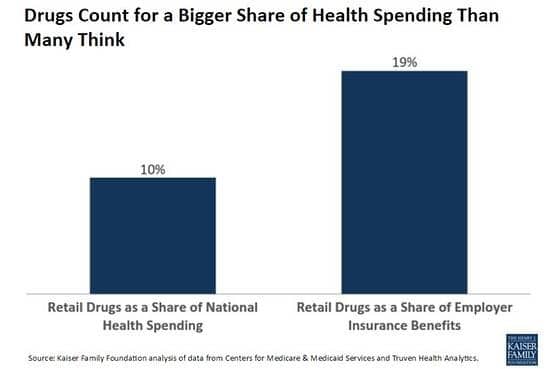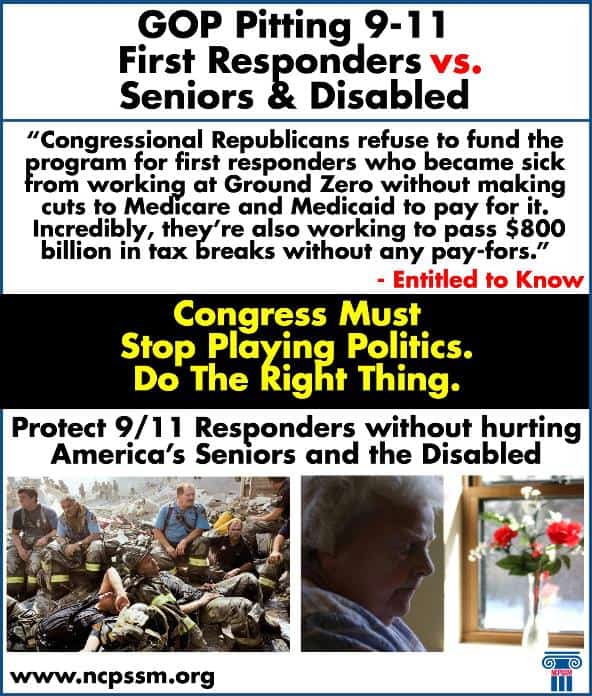New Report: Hospitals Using Observation Status to Avoid Medicare Fines

For years, patients and advocates have been warning of the increasing use of the patient classification status known as “observation stays.” A growing number of patients covered by Medicare, have spent days in the hospital, only to be surprised with large out-of-pocket costs and an inability to access long-term care because they were totally unaware the hospital never actually admitted them as a patient. Legislation signed by President Obama this summer was designed to limit the use of “observation stays.”
“The Notice of Observation Treatment and Implication for Care Eligibility Act would require hospitals to notify beneficiaries receiving observation services for more than 24 hours of their status as an outpatient under observation. The written notification would have to explain that because the beneficiary is receiving outpatient rather than inpatient services, they will be subject to cost-sharing requirements that apply to outpatient services. The notice also must say that the beneficiary’s outpatient stay will not count toward the three-day inpatient stay required for a beneficiary to be eligible for Medicare coverage of subsequent skilled-nursing facility services.” …Modern Healthcare
Now, a new analysis by the Wall Street Journal shows that observation stays have been used even more than previously documented. In fact, the WSJ reports observation stays at hospitals have increased 156% and explains why many hospitals have lowered their readmissions and thus the fines that come from too many Medicare patients returning to the hospital.
“…at hospitals around the country, more patients are entering or re-entering hospitals under something called “observation status”—a category that keeps them out of the readmission tallies. Patients on observation status can remain in the hospital for days, and typically receive care that is indistinguishable from inpatient stays, experts say. But under Medicare billing rules, the stays are considered outpatient visits, and as such, don’t trigger penalties under the health law.
The Journal’s analysis of Medicare billing data shows that increases in observation stays can skew the readmission numbers, letting hospitals avoid penalties even if patients continue to have complications and return for repeat visits. Observation stays generally are cheaper for the government, but in some cases they can lead to big bills that are the patient’s responsibility.”
In other words, rather than managing care to reduce the costs of readmission, many hospitals are relying on an administrative sleight of hand to avoid penalties.
Across the roughly 3,500 short-term acute-care hospitals—often referred to as general hospitals—that face the penalty program, the Journal identified a drop in readmission rates of about 9% from 2010 to 2013 for penalty-program conditions. Follow-up observation-stay rates increased about 48%. The rise in observation stays accounted for about 40% of the decline in readmissions, by the Journal’s measure.
So while hospitals avoid paying penalties and Medicare pays less to beneficiaries, we all know who ends up footing the bill again — seniors and their families.
Congress Investigates Skyrocketing Rx Drug Prices
It’s certainly no surprise to Medicare beneficiaries that America’s prescription drug industry continues to take a growing share of the average American’s health care costs. A new survey by Kaiser Family Foundation shows drug expenses actually takes an even bigger bite than experts previously thought.
“High drug prices have been in the news because of costly drugs to treat Hepatitis C, among other illnesses, and because elected officials and political candidates have been talking about drug costs. Rising drug prices, expanded coverage of the uninsured under the Affordable Care Act, and an improving economy have also contributed to an uptick in the rate of increase in health spending. But depending on what you count and how you count, drug spending may be an even larger problem than many thought. It clearly is for employers, who foot a large share of the nation’s health-care bills.”…Drew Altman, Kaiser Family Foundation



The Senate Special Committee on Aging has launched an investigation into recent cases in which pharmaceutical companies acquired a decades-old drug and then increased the price significantly.
The committee singled out four companies: Turing, Valeant, Rodelis and Retrophin. USA Today detailed some of the outrageous price hikes and their impact on Americans who needed life-saving prescription drugs:
Spiraling costs for two heart drugs owned by drugmaker Valeant Pharmacueticals International increased the Cleveland Clinic’s total drug budget by $8.6 million, hearing testimony showed.
North Carolina doctors treating a baby for toxoplasmosis were unable to get the Daraprim medication that targets the parasitic disease because Turing Pharmaceuticals had raised the price 40 times beyond its original cost. The doctors instead had to use an alternative medication.
Erin Fox, director of the drug information service at the University of Utah Health System, testified that a price hike from $440 to $2,700 forced her to keep a Valeant heart drug locked up after removing it from medication carts where it previously had been available.
Sen. Claire McCaskill, D-Mo., the committee’s ranking minority member, said the committee’s continuing investigation had found a pharmaceutical industry “market failure.”
“And when there’s a market failure, the government has a role in addressing it,” said McCaskill.
In Medicare’s case, the government also has the ability to address the high costs of prescription drugs, saving the program and seniors money. One simple solution is to allow Medicare to negotiate prices for prescription drugs which could save the program and its beneficiaries billions of dollars.
“The law that established Medicare Part D explicitly prohibits the prescription drug program from negotiating lower drug costs for beneficiaries. The major pharmaceutical companies adamantly defend this rule, contending that the higher prices are necessary to support the industry’s investment in research and development. However, a comparison of the prices paid by Part D with those paid by the Department of Veterans Affairs (VA) and other agencies shows that Part D could save billions of dollars through the use of additional negotiation techniques. Our analysis finds that the VA attains drug prices that, on average, are 48 percent lower than Part D plan prices for the top 10 drugs covered by the program.” …”Price Negotiation for the Medicare Drug Program: It is Time to Lower Costs for Seniors,” NCPSSM Issue Brief
UPDATE: Congress Funds 9-11 First Responders Without Targeting Medicare



The Omnibus Budget bill came out late last night and it appears Congress did the right thing. It will provide about $3.5 billion for the vitally important World Trade Center Health Program, guaranteeing that more than 72,000 known responders and survivors will have access to health care for 75 years. Another $4.6 billion will go to extend the 9/11 Victims Compensation Program for five more years. Huffington Post reports:
The major battles were focused on the question of how the bill would be paid for, with a number of the sponsors’ offers being rejected. Ultimately the bill used funding that had been earmarked for other measures that were running into opposition. One of the funding streams used for the 9/11 compensation fund will also provide over $1 billion to compensate U.S. victims of the Iran hostage crisis, the 1983 attacks on the U.S. Marine barracks in Lebanon and the 1996 bombing of the Khobar Towers in Saudi Arabia. That was a key goal of House Judiciary Chairman Bob Goodlatte (R-Va.).
Congress still has to pass the spending bill, but Republican leaders expect that to happen by Thursday.
As always, the devil is in the details and advocates are pouring through the legislation now to ensure there are no other “surprises” hidden there. However, news that Congress will reauthorize the 9-11 Fund without using Medicare and Medicaid as an ATM (once again) is good news for our brave 9-11 first-responders and also millions of Americans and their families who depend on Medicare and Medicaid for their healthcare.
GOP Pitting 9-11 First Responders vs. Seniors & Disabled
Congressional Republicans are once again holding vital federal programs hostage in order to exact cuts they can’t get otherwise to programs like Social Security and Medicare. This time it’s, unbelievably, America’s 9-11 first-responders who are being told the fund which provides health care benefits and compensation won’t be reauthorized without cuts coming from Medicare and Medicaid budgets to pay for it.
This year alone, there have been multiple attempts by Congress to use Social Security and/or Medicare as an ATM to pay for completely unrelated – yet very important – national priorities. Already this year, Medicare sequester cuts have been extended into 2024. Then Medicare was cut again to help pay for the Trade bill. There was also a failed attempt this summer to fund the highway bill with Social Security cuts. Now, the absolutely vital need to provide for 9-11 first responders is being held-up because the GOP hopes to use that leverage to get nearly $3 billion dollars in cuts from Medicare and Medicaid.
New York Senators Chuck Schumer (D) and Kirsten Gillibrand (D) stood with 9/11 responders at a Capitol Hill news conference yesterday. CBS reported:
“They carried bodies, ran into towers and dug in the rubble for remains,” Gillibrand said. “We’re reminded that more police officers have died since 9/11 than on 9/11 and we’re reminded how shameful it is that Congress has not passed a permanent reauthorization of the health and compensation programs.”
Schumer said Democrats are optimistic Congress will reauthorize the programs, but said negotiating over it is not an option.
“To hear some of my colleagues use Zadroga as a trading piece, like some bargaining piece…the lives of our first responders are not a bargaining chip and can never be. You don’t trade it…no way,” Schumer said.
As if holding 9-11 first-responders hostage in order to cut programs serving millions of seniors, people with disabilities and the poor isn’t cynical enough, here’s the real kicker — GOP negotiators are simultaneously pushing for $800 billion in tax breaks without ANY pay-fors. Apparently, so-called “fiscal responsibility” only matters when it involves funding programs for average Americans. As Sen. Robert Menendez, (D-NJ) noted tax cuts for huge corporations are exempt:
“While budget hawks have expressed concern about paying for it, Menendez pointed out that a group of senators is simultaneously negotiating a bill that would extend around $800 billion in tax breaks (for instance, it would extend write-offs for business investments and repeal a specific tax in the Affordable Care Act) — and that would go unpaid for.
“I don’t understand how the rules don’t apply to large corporations that will reap billions of dollars, but somehow those rules are asserted when we are trying to take care of the men and women who responded on that fateful day,” Menendez said. “We should accept our profound, collective responsibility — not charity — but responsibility to act on this legislation.” …CBS News
The bulk of the Medicare cuts proposed ($1.9 billion) would come from continuing the GOP trend of means-testing, ultimately converting Medicare into a welfare program in which only lower income beneficiaries receive full benefits. Years of means-testing in Medicare, begun during the Bush administration, continues to erode the benefit for millions of seniors who contribute to the program yet who Republicans say should pay more and more. Seniors who pay into Medicare and Social Security have earned their benefits. Severing that tie and turning these programs into welfare is part of the larger political goal to undermine the programs over time and a disaster for generations of seniors who will depend on them.



New Report: Hospitals Using Observation Status to Avoid Medicare Fines



For years, patients and advocates have been warning of the increasing use of the patient classification status known as “observation stays.” A growing number of patients covered by Medicare, have spent days in the hospital, only to be surprised with large out-of-pocket costs and an inability to access long-term care because they were totally unaware the hospital never actually admitted them as a patient. Legislation signed by President Obama this summer was designed to limit the use of “observation stays.”
“The Notice of Observation Treatment and Implication for Care Eligibility Act would require hospitals to notify beneficiaries receiving observation services for more than 24 hours of their status as an outpatient under observation. The written notification would have to explain that because the beneficiary is receiving outpatient rather than inpatient services, they will be subject to cost-sharing requirements that apply to outpatient services. The notice also must say that the beneficiary’s outpatient stay will not count toward the three-day inpatient stay required for a beneficiary to be eligible for Medicare coverage of subsequent skilled-nursing facility services.” …Modern Healthcare
Now, a new analysis by the Wall Street Journal shows that observation stays have been used even more than previously documented. In fact, the WSJ reports observation stays at hospitals have increased 156% and explains why many hospitals have lowered their readmissions and thus the fines that come from too many Medicare patients returning to the hospital.
“…at hospitals around the country, more patients are entering or re-entering hospitals under something called “observation status”—a category that keeps them out of the readmission tallies. Patients on observation status can remain in the hospital for days, and typically receive care that is indistinguishable from inpatient stays, experts say. But under Medicare billing rules, the stays are considered outpatient visits, and as such, don’t trigger penalties under the health law.
The Journal’s analysis of Medicare billing data shows that increases in observation stays can skew the readmission numbers, letting hospitals avoid penalties even if patients continue to have complications and return for repeat visits. Observation stays generally are cheaper for the government, but in some cases they can lead to big bills that are the patient’s responsibility.”
In other words, rather than managing care to reduce the costs of readmission, many hospitals are relying on an administrative sleight of hand to avoid penalties.
Across the roughly 3,500 short-term acute-care hospitals—often referred to as general hospitals—that face the penalty program, the Journal identified a drop in readmission rates of about 9% from 2010 to 2013 for penalty-program conditions. Follow-up observation-stay rates increased about 48%. The rise in observation stays accounted for about 40% of the decline in readmissions, by the Journal’s measure.
So while hospitals avoid paying penalties and Medicare pays less to beneficiaries, we all know who ends up footing the bill again — seniors and their families.
Congress Investigates Skyrocketing Rx Drug Prices
It’s certainly no surprise to Medicare beneficiaries that America’s prescription drug industry continues to take a growing share of the average American’s health care costs. A new survey by Kaiser Family Foundation shows drug expenses actually takes an even bigger bite than experts previously thought.
“High drug prices have been in the news because of costly drugs to treat Hepatitis C, among other illnesses, and because elected officials and political candidates have been talking about drug costs. Rising drug prices, expanded coverage of the uninsured under the Affordable Care Act, and an improving economy have also contributed to an uptick in the rate of increase in health spending. But depending on what you count and how you count, drug spending may be an even larger problem than many thought. It clearly is for employers, who foot a large share of the nation’s health-care bills.”…Drew Altman, Kaiser Family Foundation



The Senate Special Committee on Aging has launched an investigation into recent cases in which pharmaceutical companies acquired a decades-old drug and then increased the price significantly.
The committee singled out four companies: Turing, Valeant, Rodelis and Retrophin. USA Today detailed some of the outrageous price hikes and their impact on Americans who needed life-saving prescription drugs:
Spiraling costs for two heart drugs owned by drugmaker Valeant Pharmacueticals International increased the Cleveland Clinic’s total drug budget by $8.6 million, hearing testimony showed.
North Carolina doctors treating a baby for toxoplasmosis were unable to get the Daraprim medication that targets the parasitic disease because Turing Pharmaceuticals had raised the price 40 times beyond its original cost. The doctors instead had to use an alternative medication.
Erin Fox, director of the drug information service at the University of Utah Health System, testified that a price hike from $440 to $2,700 forced her to keep a Valeant heart drug locked up after removing it from medication carts where it previously had been available.
Sen. Claire McCaskill, D-Mo., the committee’s ranking minority member, said the committee’s continuing investigation had found a pharmaceutical industry “market failure.”
“And when there’s a market failure, the government has a role in addressing it,” said McCaskill.
In Medicare’s case, the government also has the ability to address the high costs of prescription drugs, saving the program and seniors money. One simple solution is to allow Medicare to negotiate prices for prescription drugs which could save the program and its beneficiaries billions of dollars.
“The law that established Medicare Part D explicitly prohibits the prescription drug program from negotiating lower drug costs for beneficiaries. The major pharmaceutical companies adamantly defend this rule, contending that the higher prices are necessary to support the industry’s investment in research and development. However, a comparison of the prices paid by Part D with those paid by the Department of Veterans Affairs (VA) and other agencies shows that Part D could save billions of dollars through the use of additional negotiation techniques. Our analysis finds that the VA attains drug prices that, on average, are 48 percent lower than Part D plan prices for the top 10 drugs covered by the program.” …”Price Negotiation for the Medicare Drug Program: It is Time to Lower Costs for Seniors,” NCPSSM Issue Brief
UPDATE: Congress Funds 9-11 First Responders Without Targeting Medicare



The Omnibus Budget bill came out late last night and it appears Congress did the right thing. It will provide about $3.5 billion for the vitally important World Trade Center Health Program, guaranteeing that more than 72,000 known responders and survivors will have access to health care for 75 years. Another $4.6 billion will go to extend the 9/11 Victims Compensation Program for five more years. Huffington Post reports:
The major battles were focused on the question of how the bill would be paid for, with a number of the sponsors’ offers being rejected. Ultimately the bill used funding that had been earmarked for other measures that were running into opposition. One of the funding streams used for the 9/11 compensation fund will also provide over $1 billion to compensate U.S. victims of the Iran hostage crisis, the 1983 attacks on the U.S. Marine barracks in Lebanon and the 1996 bombing of the Khobar Towers in Saudi Arabia. That was a key goal of House Judiciary Chairman Bob Goodlatte (R-Va.).
Congress still has to pass the spending bill, but Republican leaders expect that to happen by Thursday.
As always, the devil is in the details and advocates are pouring through the legislation now to ensure there are no other “surprises” hidden there. However, news that Congress will reauthorize the 9-11 Fund without using Medicare and Medicaid as an ATM (once again) is good news for our brave 9-11 first-responders and also millions of Americans and their families who depend on Medicare and Medicaid for their healthcare.
GOP Pitting 9-11 First Responders vs. Seniors & Disabled
Congressional Republicans are once again holding vital federal programs hostage in order to exact cuts they can’t get otherwise to programs like Social Security and Medicare. This time it’s, unbelievably, America’s 9-11 first-responders who are being told the fund which provides health care benefits and compensation won’t be reauthorized without cuts coming from Medicare and Medicaid budgets to pay for it.
This year alone, there have been multiple attempts by Congress to use Social Security and/or Medicare as an ATM to pay for completely unrelated – yet very important – national priorities. Already this year, Medicare sequester cuts have been extended into 2024. Then Medicare was cut again to help pay for the Trade bill. There was also a failed attempt this summer to fund the highway bill with Social Security cuts. Now, the absolutely vital need to provide for 9-11 first responders is being held-up because the GOP hopes to use that leverage to get nearly $3 billion dollars in cuts from Medicare and Medicaid.
New York Senators Chuck Schumer (D) and Kirsten Gillibrand (D) stood with 9/11 responders at a Capitol Hill news conference yesterday. CBS reported:
“They carried bodies, ran into towers and dug in the rubble for remains,” Gillibrand said. “We’re reminded that more police officers have died since 9/11 than on 9/11 and we’re reminded how shameful it is that Congress has not passed a permanent reauthorization of the health and compensation programs.”
Schumer said Democrats are optimistic Congress will reauthorize the programs, but said negotiating over it is not an option.
“To hear some of my colleagues use Zadroga as a trading piece, like some bargaining piece…the lives of our first responders are not a bargaining chip and can never be. You don’t trade it…no way,” Schumer said.
As if holding 9-11 first-responders hostage in order to cut programs serving millions of seniors, people with disabilities and the poor isn’t cynical enough, here’s the real kicker — GOP negotiators are simultaneously pushing for $800 billion in tax breaks without ANY pay-fors. Apparently, so-called “fiscal responsibility” only matters when it involves funding programs for average Americans. As Sen. Robert Menendez, (D-NJ) noted tax cuts for huge corporations are exempt:
“While budget hawks have expressed concern about paying for it, Menendez pointed out that a group of senators is simultaneously negotiating a bill that would extend around $800 billion in tax breaks (for instance, it would extend write-offs for business investments and repeal a specific tax in the Affordable Care Act) — and that would go unpaid for.
“I don’t understand how the rules don’t apply to large corporations that will reap billions of dollars, but somehow those rules are asserted when we are trying to take care of the men and women who responded on that fateful day,” Menendez said. “We should accept our profound, collective responsibility — not charity — but responsibility to act on this legislation.” …CBS News
The bulk of the Medicare cuts proposed ($1.9 billion) would come from continuing the GOP trend of means-testing, ultimately converting Medicare into a welfare program in which only lower income beneficiaries receive full benefits. Years of means-testing in Medicare, begun during the Bush administration, continues to erode the benefit for millions of seniors who contribute to the program yet who Republicans say should pay more and more. Seniors who pay into Medicare and Social Security have earned their benefits. Severing that tie and turning these programs into welfare is part of the larger political goal to undermine the programs over time and a disaster for generations of seniors who will depend on them.






